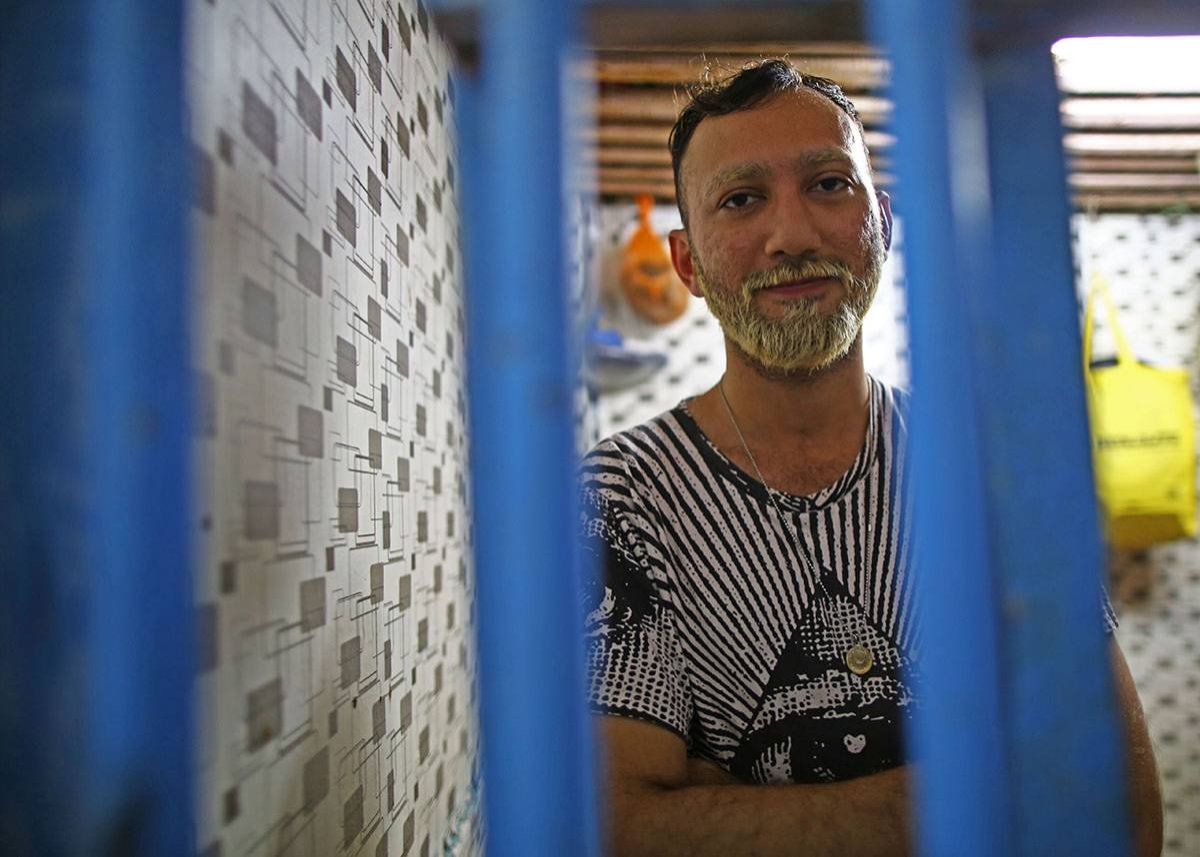LIKE many, we cringed at the rendition of the Lord’s Prayer by Pura Luka Vega a couple of months ago. Some were put off simply because they saw the performance as obnoxious, while others claimed to be outraged by what they viewed as offensive to their religious beliefs.
Some, particularly parents with children, found the drag performance obscene and inappropriate for minors. But despite all those objections, we disagree with the filing of criminal charges against the performer who was recently arrested in Manila.
 Drag Queen Pura Luka Vega, real name (Amadeus Fernando Pagente) is seen behind a precinct cell inside the Manila Police District (MPD) Station 3 at Sta. Cruz, Manila, on 05 October 2023. (PHOTO: MIKE ALQUINTO)
Drag Queen Pura Luka Vega, real name (Amadeus Fernando Pagente) is seen behind a precinct cell inside the Manila Police District (MPD) Station 3 at Sta. Cruz, Manila, on 05 October 2023. (PHOTO: MIKE ALQUINTO)
Pura Luka Vega, the stage name of Amadeus Fernando Pagente, told reporters that the performance that went viral on social media was protected by the 1987 Constitution. Although free speech is not absolute, Pura may have a valid point. Offensive speech, improper behavior or being irreverent to religious institutions are not necessarily criminal acts.
Obscenity, though, can be criminal, but the law does not clearly define it. A nude painting, for instance, may be viewed as either art or something pornographic. Still, the charges in a Manila court against Pura cited an article in the Revised Penal Code about obscenity.
First, the Revised Penal Code is an old law. What may have been considered obscene when crafted decades ago may not be interpreted the same way today. That is one of the legal issues the court will probably look at because community standards change over time. For example, the United States, which governed the Philippines when it was an American colony, used to prohibit women from wearing trousers until 1923.
Second, the legal arguments about obscenity have been largely about sex and similar behavior with prurient interests. In contrast, the charges against Pura’s performance seem based on religious grounds.
That is another reason to be concerned about the application of the Revised Penal Code in this case.
Those charges raise another issue about freedom of religion, which, like speech, is protected by the Constitution. In media interviews, Pura said the performance was a way to connect with a religion that had made members of the LGBTQIA+ community feel excluded from the Catholic Church.
Regrettably, some legal experts interviewed by the media cited blasphemy as a probable violation. They cited the case of the late Carlos Celdran, but his crime was disrupting a religious service to make a political protest. He was calling out religious leaders for opposing the Reproductive Health law, which was just a bill then.
In contrast, Pura’s performance was neither in a church nor during a religious ceremony. The people who watched Pura were apparently there to see LGBTQIA+ performances. In other words, the show was not forced on an unwilling audience to see it. Also, viewers on social media are free to watch or disregard content that they dislike or find offensive.
Granted, ecclesiastical or Church law is different. We are not experts, but blasphemy is apparently a grave offense for which excommunication can be a penalty. But that should not matter in a secular legal system.
Wrong versus criminal
Of course, the Manila court has the final say about Pura’s case, and people should respect that. On a related matter, the authorities should investigate Pura’s claim that there were no court notices served before an arrest warrant was issued. No one should not be penalized for the failure of the courts to properly notify any defendant.
Meanwhile, this case has become international news. The reports portray the Philippines as an intolerant place for the LGBTQIA+ community, perhaps Filipinos as prudes or, worse, as homophobic.
That is just inaccurate. There are gay and trans people serving in government and occupying high places in business. Filipinos value diversity. They are not dogmatic about their religion, even though the majority belong to the Roman Catholic Church.
That does not mean that Filipinos never feel offended. Evidently, Pura’s performance sparked outrage. But everyone should be mindful about doing things that may diminish our constitutional rights and privileges.
Respecting others is important. Equally significant is knowing that not everything wrong is criminal or should be prosecuted.
*****
Credit belongs to : www.manilatimes.net
 Atin Ito First Filipino Community Newspaper in Ontario
Atin Ito First Filipino Community Newspaper in Ontario






